Neuroscience
-
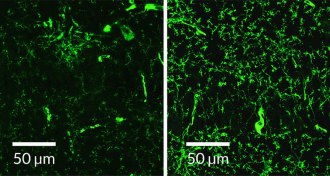 Neuroscience
NeuroscienceBrain waves show promise against Alzheimer’s protein in mice
Flickers of light induce brain waves that wash amyloid-beta out of the brain, mouse study suggests.
-
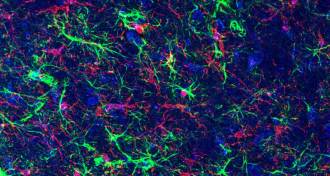 Neuroscience
NeuroscienceGut microbe mix may spark Parkinson’s
Parkinson’s disease symptoms might be driven by gut microbes
-
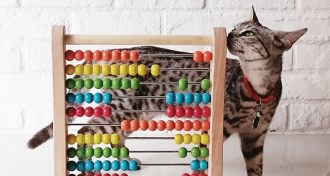 Animals
AnimalsAnimals give clues to the origins of human number crunching
Guppies, dogs, chickens, crows, spiders — lots of animals have number sense without knowing numbers.
By Susan Milius -
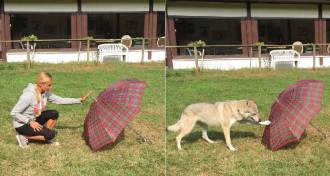 Animals
AnimalsDogs form memories of experiences
New experiments suggest that dogs have some version of episodic memory, allowing them to recall specific experiences.
-
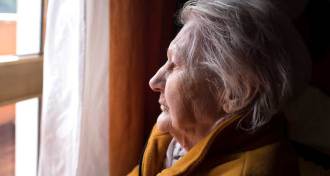 Neuroscience
NeuroscienceDespite Alzheimer’s plaques, some seniors remain mentally sharp
Plaques and tangles riddle the brains of some very old and very healthy people.
-
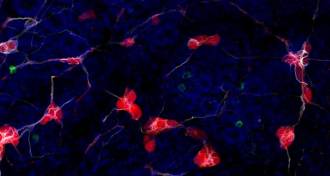 Neuroscience
NeuroscienceProtein linked to Parkinson’s travels from gut to brain
Parkinson’s protein can travel from gut to brain, mouse study suggests.
-
 Neuroscience
NeuroscienceSounds and glowing screens impair mouse brains
Too much light and noise screws up developing mice’s brains.
-
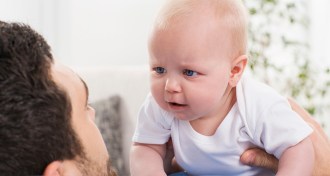 Neuroscience
NeuroscienceInfant brains have powerful reactions to fear
Babies can recognize facial emotions, especially fear, as early as 5 months old.
-
 Neuroscience
NeuroscienceZap to the head leads to fat loss
Stimulating the vestibular nerve led people to shed fat in a small trial.
-
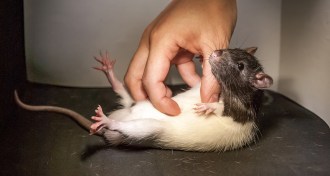 Neuroscience
NeuroscienceGiggling rats help reveal how brain creates joy
Rats relish a good tickle, which activates nerve cells in a part of the brain that detects touch.
-
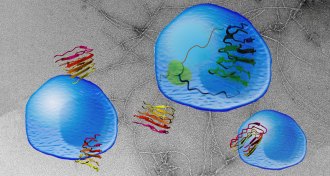 Life
LifeProtein mobs kill cells that most need those proteins to survive
A protein engineered to aggregate gives clues about how clumpy proteins kill brain cells.
-
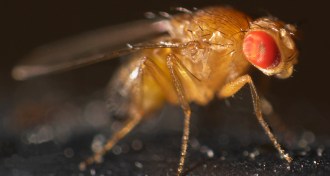 Neuroscience
NeuroscienceShape-shifting molecule aids memory in fruit flies
A prionlike protein may store long-term memories in fruit flies, a new study suggests.